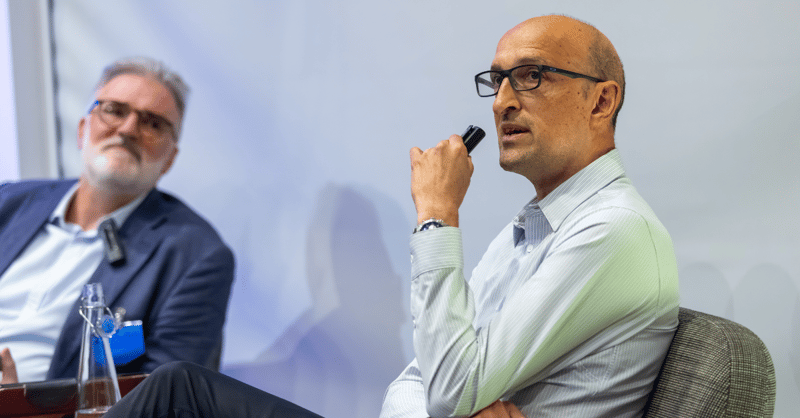Whether it’s due to economic challenges, market shifts or a drop in consumer demand, talent attraction is no longer a priority for many organisations.
The CIPD found that hiring intentions among British companies has fallen to a record low, with just 57% of businesses planning to recruit this autumn. A report from KPMG and the Recruitment and Employment Confederation generated similar findings, following a sharp decline in recruitment activity this summer. And this all comes after graduate job openings fell by more than 20% earlier this year, as a direct consequence of government legislation changes.
With no new talent coming in, organisations are going to need their existing workforce to step up, with a focus on retaining key skills and knowledge moving forward.
The need to do more with what they have
This desire to retain talent has since translated into growing recognition of the value that older employees bring to the workforce; as well as an understanding of the damaging consequences that could be felt if these individuals leave the world of work prematurely.
The OECD has warned that older Britons must work longer to prevent economic slowdown, with just 58% of those in their 60s currently in employment. This comes alongside increasing recognition and appetite from employees themselves, with half of managers aged 55 or over saying they believe the retirement age should be raised.
And while the CMI also rightly flagged the potential issues with longer working lives – particularly around wellbeing and the physical strain of certain professions – the sentiment is clear: older colleagues possess invaluable knowledge and expertise that organisations, and the wider economy, simply cannot afford to lose.
However, it’s crucial that business leaders avoid becoming tunnel visioned in their efforts to engage and retain this one demographic.
Our Europe-wide research found that 21% of Gen Z employees are considering leaving the workforce altogether, while ManpowerGroup’s Talent Barometer discovered that job satisfaction within the Millennial age group has dropped by 6% year-on-year. In fact, nearly half of employees (45%) are at least somewhat dissatisfied with their job and open to exploring new opportunities.
But perhaps most alarming of all, is the evident disconnect between business leaders and their people when it comes to engagement. Our recent research found that while 53% of leaders are confident that their workforce is fully engaged, the reality is that barely more than a third of employees actually are, with a higher percentage (41%) saying they feel disengaged at work.
Clearly, there’s an engagement issue simmering under the surface – one that organisations cannot allow to boil over if they want to retain their people and remain competitive.
Career support done the right way
Despite the constant fluctuations seen and felt within the world of work, the one thing that has and always will remain constant is a desire from employees to see a future for themselves within their organisation. And the best way for a business to demonstrate its commitment to its people is through investing in their careers.
Satisfaction with career support was the 2nd strongest driver of engagement, as found by our latest research. However, it’s critical that business leaders communicate and deploy this support in the right way.
There remains an outdated and problematic view that career support is a remedial practice. As reported by the Telegraph, some organisations continue to make it available only to those who they view as being the lowest performers. This approach is then what drives misconceptions and a heightened sense of stigma, which can prevent employees from engaging with career development initiatives – 32% of employees we surveyed said that a fear of judgement prevented them from taking up coaching support.
Instead, business leaders should be communicating openly about their own experiences with career support, while encouraging employees at all levels of the organisation to engage with similar initiatives – whether its assessments, digital learning platforms or coaching.
The business impact
With employees feeling empowered to utilise career support and pursue ongoing learning and development, leaders are far more likely to see a happier, more engaged and highly skilled workforce that can support organisational success.
- When backed by career development initiatives, 77% of employees say they feel equipped with the skills and experience to achieve their career goals with their organisation
- 1 in 5 organisations who provide coaching support said they saw a 20% reduction in turnover, with 40% of coached employees being promoted within a year
- Assessments have been found to directly improve retention, meaning two thirds of business leaders now regularly use them to support ongoing business growth
When business leaders invest in their people, they’re laying the foundations for both individual and organisational success.
To find out more about how career support can mobilise talent and unlock growth, catch up on our webinar: From Stagnation to Agility – Driving workforce transformation in a flatter world.




